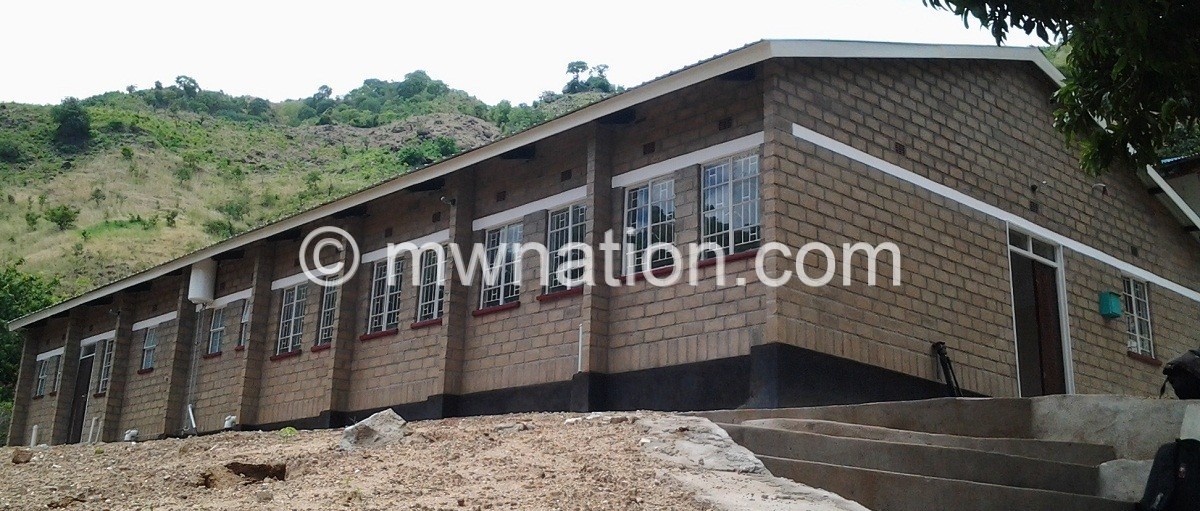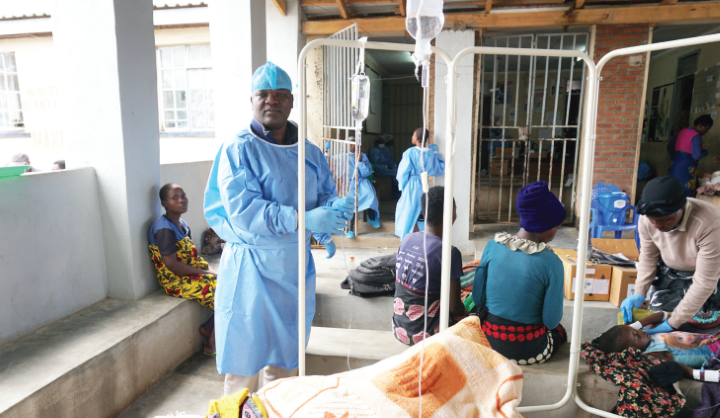Risky childbirths of Ruarwe
Last December, Pamela Mphasi, 21, gave birth at home and named the baby Favour because she was born “luckily if not riskily”.
This is contrary to a policy government adopted in 2007 to ensure every baby is born in a clinic.

“I used to go to Ruarwe Health Centre for antenatal services. Due to lack of a maternity ward and a midwife, the medical assistant referred me to Usisya Health Centre. But I didn’t go. My guardian had no money,” says the mother of two, from Boghoyo in Nkhata Bay North.
Mphasi gave birth with the assistance of her unskilled mother and neighbours.
Lack of a skilled birth attendant has left pregnant women at Ruarwe travelling over 15 kilometres to Usisya.
Most of them make the risky canoe trips while experiencing labour pains. Others risk their lives giving birth at home assisted by unskilled hands.
Ruarwe Health Centre, mostly accessible by water, is only served by Paul Kabuzi, a medical assistant working on part-time as government is yet to employ him.
The community on the shores of Lake Malawi constructed the clinic during the abolished Youth Week in 1980 to improve access to health services. It comprises a small house with a delivery room doubling as a maternity ward.
The overwhelmed health worker usually refers pregnant women to Usisya due to lack of essential staff and equipment for handling birth-related complications.
Eleven years ago, government banned traditional birth attendants (TBAs), saying skilled health workers would reduce maternal deaths and complications.
However, shortage of adequately staffed and equipped healthcare facilities has left women walking long distances to the nearest health centre.
Mphasi counts herself lucky to have delivered without complications. But other women die due to birth-related complications at the hands of the TBAs.
“A lot of people in Ruarwe were born at home because they could not afford transport to Usisya. Some women give birth in canoes on the risky rides to the far-off facility. Some die in the process,” she says.
Long travels constitute one of the delays that made Malawi miss the Millennium Development Goal (MDG) target to reduce maternal deaths from about 800 in every 100 000 live births to 155 by 2015.
Ministry of Health assessments revealed that the burden hovered around 439 three years ago.
The main killers include haemorrhage, infections, unsafe abortion, Aids and obstructed labour.
To lessen the problem, government has constructed a modern maternity wing at Ruarwe using the District Development Fund (DDF).
“We feel lucky to have this magnificent building. We will be delivering right here” brags Mphasi.
Village head Chiyuzga thanks Nkhata Bay District Council for coming to the rescue of women in Ruarwe and surrounding areas.
“Our women have been dying for a maternity ward for many years. They were suffering to deliver. Many families couldn’t raise money for transport to Usisya,” says the traditional leader.
Paul Kabuzi, the lone medical assistant, hopes this will reduce the number of women delivering at the hands of TBAs. Most of them seldom returned to the facility for post-birth care, he says.
“Most women stay home when referred to Usisya,” he says. “Between November and December 2017, three women delivered at home and only one of them came for medical check-up. This is unhealthy for the mother and new-born.”
He shared his agony: “It was painful to send a pregnant woman to another health centre due to lack of medical equipment and space when I was competent to ensure every baby is born safely right here.”
The new maternity wing gives him the ease to do what he could not do, including manual vacuum extraction.
Youth Net and Counselling (Yoneco) Nkhata Bay District manager Dunreck Pande described the new facility as a milestone when it comes to safe motherhood initiative as government wants every woman to deliver at a health facility.
“What remains now is deploying the required personnel to the health centre to assist the women who are encouraged to go and deliver there,” he says.
Nkhata Bay district health officer Mwatikonda Mbendela says they will recruit an additional medical assistant, midwife, ward attendants and ground labourers for the hard-to-reach facility.
It also requires a boat ambulance to speed up referrals.





